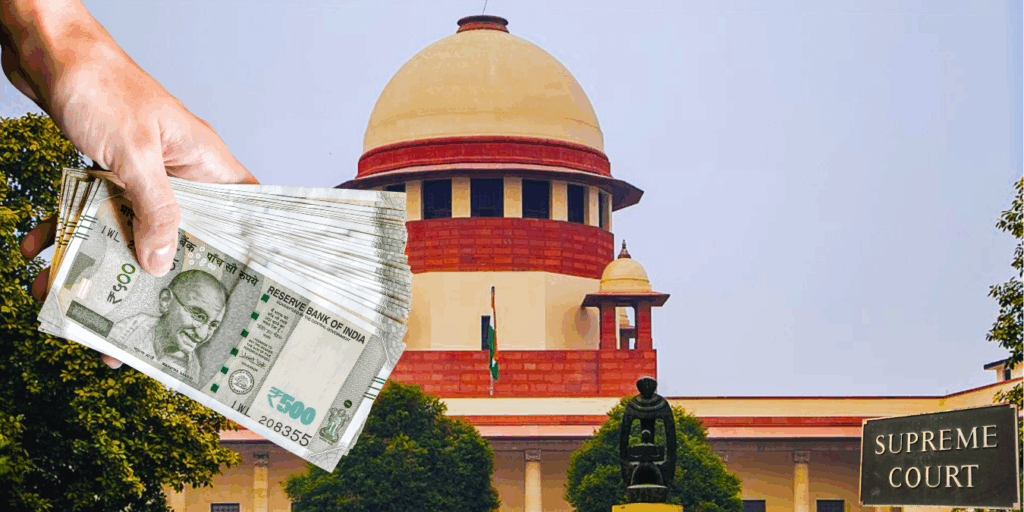
“The Supreme Court’s landmark ruling on motor accident claims: a “legal representative” now includes anyone suffering loss, not just spouses, children, or parents. Learn how this impacts compensation, filing claims, and your rights. Stay informed with the latest data and expert insights on navigating motor accident claims in India.”
In a landmark judgment that has far-reaching implications for motor accident claims in India, the Supreme Court has clarified the definition of a “legal representative” under the Motor Vehicles Act, 1988. The Court ruled that a legal representative is not limited to the spouse, child, or parent of the deceased but can be anyone who suffers a loss due to the death of the victim. This decision is set to reshape the landscape of motor accident claims, ensuring that justice is accessible to a broader range of individuals who may have been financially dependent on the deceased.
Background of the Case
The case in question, Sadhana Tomar & Ors. v. Ashok Kushwaha & Ors., involved the tragic death of Dheeraj Singh Tomar, a 24-year-old who was traveling in an auto-rickshaw that overturned due to rash and negligent driving. The Motor Accident Claims Tribunal (MACT) and the High Court initially refused compensation to the father and younger sister of the deceased, arguing that they were not financially dependent on him.
Supreme Court’s Ruling
The Supreme Court set aside the lower courts’ decisions, stating that the term ‘legal representative’ should be interpreted broadly. The Court emphasized that financial dependence, rather than immediate family ties, should determine eligibility for compensation. This ruling aligns with previous judgments, such as Gujarat SRTC v. Ramanbhai Prabhatbhai (1987) and N. Jayasree v. Cholamandalam MS General Insurance Co. (2022), which also advocated for a broader interpretation of ‘legal representative’.
Legal Insights
Under Section 166 of the Motor Vehicles Act, any dependent who suffers financial loss due to a motor accident can claim compensation. The Supreme Court’s decision reinforces this provision, ensuring that extended family members and other financially dependent individuals are not excluded from claiming compensation.
Understanding the Supreme Court’s Ruling
The Case in Question
The Supreme Court’s ruling came in response to a case where the claimant was not a direct family member of the deceased but had been financially dependent on them. The lower courts had denied the claim, citing that the claimant did not fall within the traditional definition of a legal representative. However, the Supreme Court overturned this decision, emphasizing that the term “legal representative” should be interpreted broadly to include anyone who has suffered a loss due to the death of the victim.
Key Takeaways from the Judgment
- Broad Definition of Legal Representative: The Supreme Court clarified that a legal representative is not confined to the immediate family members of the deceased. Instead, it includes anyone who has suffered a financial or emotional loss due to the death of the victim.
- Focus on Dependency: The Court emphasized that the key factor in determining a legal representative is dependency. If the claimant can prove that they were financially dependent on the deceased, they are entitled to file a motor accident claim.
- Justice for All: This judgment ensures that justice is not limited to the immediate family members of the deceased. It opens the door for extended family members, partners, and even close friends to seek compensation if they can demonstrate their dependency on the deceased.
Implications of the Judgment
Expanding the Scope of Compensation
The Supreme Court’s ruling has significantly expanded the scope of who can file a motor accident claim. This is particularly important in a country like India, where joint families and extended family structures are common. In many cases, individuals who are not immediate family members may still be financially dependent on the deceased. This judgment ensures that such individuals are not left without recourse.
Encouraging Fair Compensation
By broadening the definition of a legal representative, the Supreme Court has taken a significant step towards ensuring fair compensation for all those who suffer a loss due to a motor accident. This is especially crucial in cases where the deceased was the primary breadwinner, and their death leaves multiple dependents in financial distress.
Reducing Legal Hurdles
The judgment also reduces the legal hurdles that claimants may face when filing a motor accident claim. Previously, claimants who were not immediate family members often had to navigate complex legal processes to prove their dependency. The Supreme Court’s ruling simplifies this process, making it easier for all dependents to seek compensation.
Detailed Analysis
Financial Dependence as a Criterion
The Supreme Court’s ruling underscores the importance of financial dependence in determining eligibility for compensation. This approach ensures that all individuals who relied on the deceased’s income are considered, providing a more just and equitable outcome.
Case Study: Sadhana Tomar & Ors. v. Ashok Kushwaha & Ors.
In this case, the deceased, Dheeraj Singh Tomar, was the primary breadwinner for his family. Despite this, the MACT and the High Court initially denied compensation to his father and younger sister. The Supreme Court’s decision to overturn these rulings highlights the need for a broader interpretation of ‘legal representative’ to include all financially dependent individuals.
Legal Precedents
The Supreme Court’s ruling is consistent with previous judgments that advocate for a broader interpretation of ‘legal representative’. In Gujarat SRTC v. Ramanbhai Prabhatbhai (1987), the Court held that the term should not be confined to immediate family members. Similarly, in N. Jayasree v. Cholamandalam MS General Insurance Co. (2022), the Court emphasized that financial dependence is the key criterion for compensation claims.
Latest Data on Motor Accident Claims in India
Rising Number of Road Accidents
According to the latest data from the Ministry of Road Transport and Highways, India witnessed over 4.37 lakh road accidents in 2022, resulting in more than 1.55 lakh deaths. These staggering numbers highlight the urgent need for effective legal mechanisms to ensure that victims and their dependents receive fair compensation.
Compensation Trends
The average compensation awarded in motor accident claims has seen a steady increase over the years. In 2022, the average compensation awarded by Motor Accident Claims Tribunals (MACTs) was approximately ₹5-10 lakhs. However, in cases involving severe injuries or fatalities, the compensation amount can go up to ₹1 crore or more, depending on the circumstances.
Challenges in Claim Settlement
Despite the increasing compensation amounts, there are still significant challenges in the settlement of motor accident claims. Delays in the legal process, lack of awareness among claimants, and inadequate documentation are some of the key issues that need to be addressed. The Supreme Court’s recent judgment is a step in the right direction, but more needs to be done to streamline the claims process.
How to File a Motor Accident Claim as a Legal Representative
Step 1: Gather Necessary Documentation
The first step in filing a motor accident claim is to gather all necessary documentation. This includes:
- Police Report: A copy of the FIR filed in connection with the accident.
- Medical Reports: If the victim suffered injuries, medical reports detailing the extent of the injuries and treatment received.
- Death Certificate: In case of fatalities, a death certificate is required.
- Proof of Dependency: Documents that establish the claimant’s dependency on the deceased, such as bank statements, affidavits, or other financial records.
Step 2: File the Claim with the MACT
The next step is to file the claim with the Motor Accident Claims Tribunal (MACT) in the jurisdiction where the accident occurred. The claim should include:
- Details of the Accident: A detailed account of the accident, including the date, time, and location.
- Details of the Deceased: Information about the deceased, including their age, occupation, and income.
- Details of the Claimant: Information about the claimant, including their relationship with the deceased and proof of dependency.
- Compensation Sought: The amount of compensation being sought, along with a breakdown of how the amount was calculated.
Step 3: Attend Hearings and Provide Evidence
Once the claim is filed, the MACT will schedule hearings where both parties can present their case. It is crucial to attend all hearings and provide any additional evidence that may be required. This may include witness statements, expert opinions, or additional financial records.
Step 4: Await the Tribunal’s Decision
After considering all the evidence, the MACT will make a decision on the claim. If the claim is successful, the tribunal will award compensation to the claimant. The amount of compensation will depend on various factors, including the age and income of the deceased, the extent of dependency, and the circumstances of the accident.
Tips for Maximizing Your Compensation
1. Seek Legal Assistance
Navigating the legal process can be complex, especially for those who are not familiar with the intricacies of motor accident claims. Seeking legal assistance from an experienced lawyer can significantly increase your chances of securing fair compensation. A lawyer can help you gather the necessary documentation, file the claim, and represent you in court.
2. Document Everything
Thorough documentation is crucial in motor accident claims. Make sure to keep detailed records of all expenses related to the accident, including medical bills, funeral expenses, and any other costs incurred. This will help you build a strong case and ensure that you receive the maximum compensation possible.
3. Be Honest and Transparent
Honesty and transparency are key when filing a motor accident claim. Provide accurate information and avoid exaggerating your losses. Any discrepancies in your claim can lead to delays or even rejection of your case.
4. Understand Your Rights
Understanding your rights as a legal representative is essential. The Supreme Court’s recent judgment has expanded the definition of a legal representative, but it is still important to be aware of the legal framework governing motor accident claims. Familiarize yourself with the Motor Vehicles Act, 1988, and stay updated on any changes in the law.
Final Thought
The Supreme Court’s ruling on the definition of a legal representative in motor accident claims is a significant step towards ensuring justice for all those who suffer a loss due to a motor accident. By broadening the scope of who can file a claim, the Court has made it easier for dependents to seek compensation, regardless of their relationship to the deceased.
However, navigating the legal process can still be challenging, and it is essential to be well-informed and prepared. By understanding your rights, gathering the necessary documentation, and seeking legal assistance, you can maximize your chances of securing fair compensation.
As road accidents continue to rise in India, it is more important than ever to ensure that victims and their dependents have access to justice. The Supreme Court’s judgment is a positive development in this regard, but there is still much work to be done to streamline the claims process and ensure that all dependents receive the compensation they deserve.
If you or someone you know has been affected by a motor accident, don’t hesitate to seek legal advice and explore your options for filing a claim. With the right support and guidance, you can navigate the legal process and secure the compensation you are entitled to.
-

Best Term Insurance Plan India 2026: ₹1 Crore Cover at the Lowest Premium
-

The Supabase India Ban Explained: Who’s Affected, Why It Happened, and What Comes Next
-

Geopolitical Shock: Bitcoin Tumbles Under $64K Following US-Israel Military Strike on Iran
-

New EPFO Rule 2026: You Can Now Withdraw 100% of Your PF Balance Without Resigning — Here’s How




























